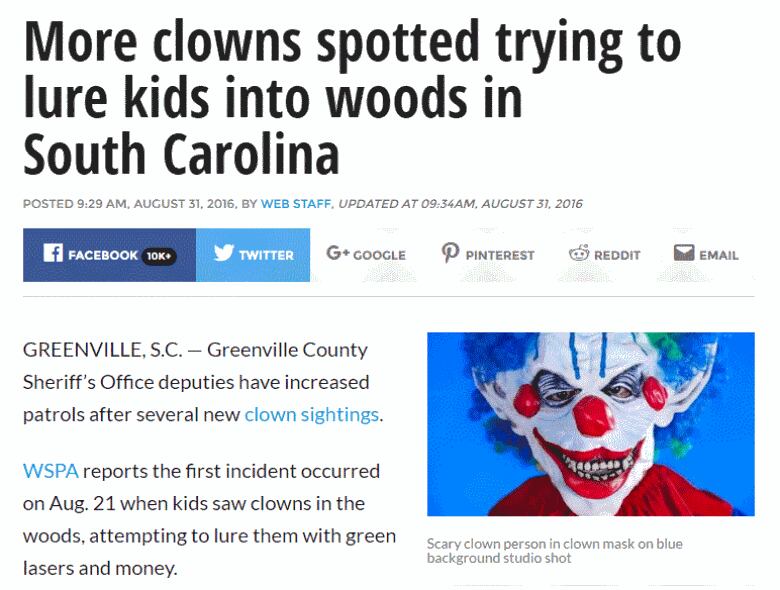Beware the clowns: a lesson in moral panic


Something strange is happening in South Carolina.
People are telling the media and police that they've seen sinister clowns near forest, offering children money and luring them into the woods.
The clown sightings have continued for days, but so far, there's no photographic or physical evidence of any malicious clowns.

Stuart Poyntz, an Associate Professor in communications at Simon Fraser University, says the media may be contributing to a moral panic.
A moral panic is a way of telling stories in simple and straightforward ways that try to resolve larger problems. So in this case, children are under threat from an unknown.- Stuarty Poyntz, Simon Fraser University
Poyntz says the story, with its vague sense of reality, plays on people's fears that some universal insidious force is trying to lure or corrupt children.

Poyntz says the unproven existence of sinister clowns trying to lure children away, at a time when people are concerned gawdily dressed men will be in the bathroom with their daughters, is an example of how a moral panic can distract people from genuine and complicated issues.
The societal harms of moral panics are numerous. It does tend to focus our attention on the wrong kind of scapegoats that are meant to explain problems. It also tends to distract us from changes that are ongoing in the lives of those who we care about most.- Stuart Poyntz, Simon Fraser University
As for the media, he'd recommend at least trying to determine whether sinister clowns are actually in the woods of South Carolina before reporting on the story any further.
Press PLAY to listen to the complete interview